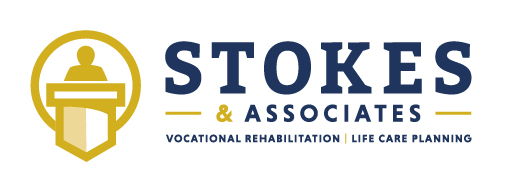Vocational Assessments: Best Case Scenario, Appreciate the Value of an Established Work History
Evaluating rehabilitation potential, employability, wage earning capacity and expected earnings following an injury is complex and requires a thorough, step-wise approach. An initial vocational interview provides rich information including: the interviewee’s educational attainment, vocational training, work history, work pattern, earnings history, reported physical limitations, vocational interests and knowledge about searching jobs, transferable skills, as well as values and motivation for work. When appropriate, vocational testing offers normative information regarding an individual’s ability to perform in certain jobs or work environments. Finally, a review of medical documentation and other records such as functional capacity evaluations, depositions, earnings records, and employment records provides the contextual information to make final assessments regarding pre-vs post-injury rehabilitation potential, employability, wage earning capacity and expected earnings.
As is the case in many behavioral sciences, past behavior is often the best predictor of future outcomes. With the many variables that can impact likely vocational performance, having a “vocational track record” can be an evaluator’s most reliable guidepost. An established work history and/or work pattern clarifies vocational opinions as an established history of earnings is a strong predictor of future vocational performance. The work history is an important component of the multi-factorial approach to predicting future worker behavior. If it is determined that the individual is unable to return to the work held at the time of injury, a transferable skills analysis ultimately assists in determining the types of jobs available to the individual post-injury. When considering all of the factors during the assessment process, the work history is a key component in establishing the foundation needed to determine the worker’s rehabilitation potential, employability, earning capacity and expected earnings post-injury.
We offer complimentary consultations concerning "hypothetical matters." To strategize with one of our experts at Stokes & Associates, please call David Barrett at 504-454-5009 or email dbarrett@stokes-associates.com.
Larry S. Stokes, Ph.D.
Aaron Wolfson, Ph.D.
Todd Capielano, M.Ed., LRC, CRC, LPC, CLCP
Lacy Sapp, MHS, CRC, LPC, LRC, CLCP
